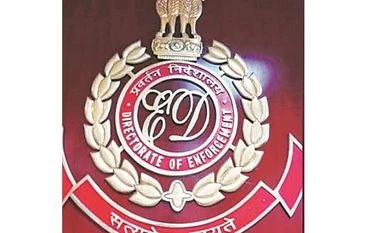Maharashtra education society cheated medical aspirants of Rs 65 cr: ED
The money collected from 350 medical aspirants was used for purchasing properties or for personal use by the accused, ED alleged in the charge-sheet recently filed in the money laundering case
)
According to the ED, the SCSES had collected the amount despite being aware that it did not have necessary permissions from the Medical Council of India or Maharashtra University of Health Science for granting admissions to the MBBS course.
The former working president of the Kolhapur-based Shri Chhatrapati Shivaji Education Society (SCSES) and other accused had collected over Rs 65 crore from medical aspirants for admission in a college run by the trust, the Enforcement Directorate (ED) has claimed in its charge-sheet in the case.
The money collected from 350 medical aspirants was used for purchasing properties or for personal use by the accused, the probe agency alleged in the charge-sheet recently filed in the money laundering case.
According to the ED, the SCSES had collected the amount despite being aware that it did not have necessary permissions from the Medical Council of India or Maharashtra University of Health Science for granting admissions to the MBBS course.
The ED is probing the case pertaining to duping of medical aspirants by the SCSES, in which the trust's former working president Mahadev Deshmukh and his brother Appashaheb, the then secretary have been arrested.
The Deshmukh brothers are currently in judicial custody.
Also Read
The probe agency filed its charge-sheet before a special PMLA court against Mahadev, three former officer bearers.
As per the charge-sheet, Mahadev Deshmukh in collusion with the other accused had cheated around 350 gullible students from 2011 to 2016 and collected around Rs 65.70 crore on the pretext of offering admission for MBBS course in the college called Institute of Medical Science and Research (IMSR) run by the SCSES.
The accused assured the students of granting admission despite being aware that the society did not have permission from the Medical Council of India and the Maharastra University of Health Science, it stated.
The students were neither given admission, nor was their amount refunded, it said.
The funds were allegedly collected in cash and shown as hospital income and integrated in the financial system through seven bank accounts of the society and colleges, it said.
The ED has also claimed that the money was further layered in the guise of salaries, processing fees, construction payments, purchase of medical equipment etc., and was either integrated in the individual bank account of the accused persons or withdrawn in cash by them.
The proceeds of crime was utilised for purchase of movable and immovable properties or for personal use, it said.
Meanwhile, the SCSES' present director Arun Gore, in his statement told the ED, claimed that after he joined as the charitable educational trust's director, many students had approached the new board with their grievances.
It came to light that the earlier board of directors had taken cash from approximately 750 students and given them bogus assurance of admission, Gore's statement said.
As per the charge-sheet, he has submitted a list of those students and the details of the cash amount collected from 720 students.
The director has also alleged that when the aggrieved students approached the earlier board of directors, they issued cheques in their names. However, those cheques bounced, and the students filed a case under section 420 (cheating) of the IPC and Negotiable Instrument Act.
The students used to deposit cash with Maruti Shankar Shitole and Kiran Dhumal, the then administrative officer and senior clerk respectively. The duo used to give the collected sum to the Deshmukh brothers and Mohammad Shad Siddiqui, the then secretary, Gore has alleged in his statement.
(Only the headline and picture of this report may have been reworked by the Business Standard staff; the rest of the content is auto-generated from a syndicated feed.)
More From This Section
Don't miss the most important news and views of the day. Get them on our Telegram channel
First Published: Jul 23 2022 | 8:57 PM IST


